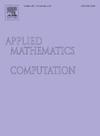基于愿望的集体相互依赖的社会困境演化
IF 3.4
2区 数学
Q1 MATHEMATICS, APPLIED
引用次数: 0
摘要
群体相互作用是不能仅仅通过成对相互作用的聚合来充分解释的一个关键类别。例如,集体相互依存说明了不同系统中相互依存的群体如何从它们的协同关系中发挥作用。本研究引入基于期望的集体相互依存适应机制,探讨合作的演化。当一个群体的总收益超过预定的期望水平时,就会触发集体相互依赖。我们的研究结果表明,集体相互依赖所固有的全局协同因素显著地促进了合作行为。然而,抱负的作用表现出微妙的影响。研究发现,在全球协同效应较高的条件下,最优期望水平使合作最大化。然而,在低全球协同效应和局部诱惑的情况下,随着愿望的增加,合作呈现双峰分布,第二个高峰的规模超过了第一个高峰。此外,对于一个合适的期望,合作者可能主导一个亚种群,而叛逃者可能占据另一个亚种群。我们的工作揭示了集体相互依赖对合作者传播的重要影响,并可能为研究相互依赖系统中的人类合作提供一个视角。本文章由计算机程序翻译,如有差异,请以英文原文为准。
The evolution of social dilemma based on aspiration-based collective interdependence
Group interactions represent a critical class which can not be adequately explained through the mere aggregation of pairwise interactions. For instance, collective interdependence exemplifies how the functioning of interdependent groups across different systems emerges from their synergistic relationships. This study introduces an aspiration-based adaptive mechanism for collective interdependence to explore the evolution of cooperation. Collective interdependence is triggered when the total payoff of a group surpasses a predefined aspiration level. Our findings reveal that the global synergy factor inherent to collective interdependence significantly enhances cooperative behavior. However, the role of aspiration exhibits nuanced effects. It is found that an optimal aspiration level maximizes cooperation under conditions of high global synergy effects. Yet for low global synergy effects and local temptations, cooperation displays a bimodal distribution as aspiration increases, with the second peak surpassing the first in magnitude. Furthermore, for a proper aspiration, it is possible for cooperators to dominate one subpopulation and defectors to occupy the other one. Our work reveals the important influence of collective interdependence on the spreading of cooperators, and may provide a perspective to study human cooperation on interdependent systems.
求助全文
通过发布文献求助,成功后即可免费获取论文全文。
去求助
来源期刊
CiteScore
7.90
自引率
10.00%
发文量
755
审稿时长
36 days
期刊介绍:
Applied Mathematics and Computation addresses work at the interface between applied mathematics, numerical computation, and applications of systems – oriented ideas to the physical, biological, social, and behavioral sciences, and emphasizes papers of a computational nature focusing on new algorithms, their analysis and numerical results.
In addition to presenting research papers, Applied Mathematics and Computation publishes review articles and single–topics issues.

 求助内容:
求助内容: 应助结果提醒方式:
应助结果提醒方式:


